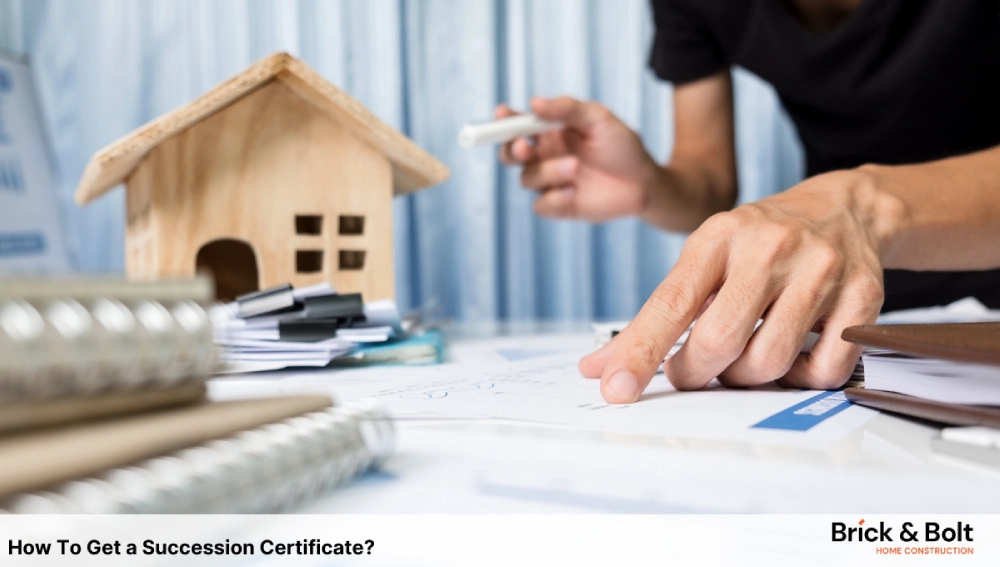After a person’s death, his/her properties and the stakes within have to be passed on to the rightful beneficiaries. This procedure is sometimes rather lengthy and can take a very long time, particularly in cases of numerous heirs or properties.
In Indian law, the method of passing on property after a person’s death is controlled by the Indian Succession Act of 1925. This blog will reflect on what a Succession Certificate is, cover the needed documents, and how to apply for it.
What is a Succession Certificate for property?
The Civil Court grants a succession certificate in a given jurisdiction to a legal heir of the deceased person. This certificate empowers successor(s) to recover debts as well as securities of the deceased person.
This is needed when an estate is transferred or passed to someone. It is needed to pay a deceased person’s debts and receive their securities. There are 5 steps Procedure to Obtain a Succession Certificate
Who Issues the Succession Certificate?
The District Court granted the Succession Certificate where the deceased person was residing. If the deceased person does not have a permanent home, the petition may be presented before the district court of any place where the deceased’s property is located.
How To Get a Succession Certificate?

To obtain a Succession Certificate, follow these steps:
Filing a Petition
Petition for Certificate: The petition must contain the following particulars:
- Time of death of the deceased
- Residence or details of properties of the deceased at the time of death within which the Judge’s jurisdiction falls under
- Details of family or other near relatives
- The rights of the petitioner
- Absence of any impediment
Submitting the Fees
The court fee for a Succession Certificate is usually 2-3% of the total value of the property.
Publishing of Notice in the Newspaper
A newspaper notice for 45 days is issued by the court. Any person having an objection can file an opposition.
Granting the Certificate
If the court does not receive any objection, it will issue the Succession Certificate.
Signing the Indemnity Bond
The certificate holder must sign an indemnity bond to ensure that all payments made to or dealings had in good faith with a person to whom a certificate is granted are protected.
What are the Documents Required for Succession Certificate?
To obtain a succession certificate in India, you must submit the following documents.
- Application form
- Death certificate if the deceased
- Details of assets & liabilities
- Identification proof of legal heirs (Aadhar, PAN card, passport, etc.)
Succession Certificate for Property: Why is it required?
1. To grant the ownership of the immovable properties of the deceased.
- In case a person dies, the legal process followed is the Succession Certificate to prove the rightful heirs to that person’s property and assets.
- They provide the certificate holder authoritative powers to take over and pay the debts and securities of the deceased.
2. To recover any debts and securities that were owed to the deceased
- The succession certificate empowers the holder to recover any debts and securities due to the deceased person.
- It enables the holder to earn interest/dividends of the securities and bargain or exchange them.
3. To pay burial and funeral expenses and other debts.
- A succession certificate enables the legal heirs to control the properties and assets along with the liabilities of the deceased person.
- It aids in avoiding litigations and makes them secure the transfer of property and payment of debts.
4. To justify why the heirs have the right to demand.
- The certificate has a legal worth as it confirms the transfer of assets of a deceased person to the rightful heirs.
- It can be used when you need to make a claim on the assets of the deceased relative.
Conclusion
A Succession Certificate is an essential certificate when it comes to succession, payment of some debts, and obtaining some securities of a dead person. We can Transfer Property even without the Succession Certificate. In case of a problem or for more information, go to the local Revenue Office or contact a lawyer of your choice.
FAQs
Why is a succession certificate required?
A Succession Certificate is required to transfer or inherit property, pay debts, or collect securities on behalf of a deceased person.
What is the cost of a succession certificate in India?
The cost of a Succession Certificate in India is usually 2-3% of the total value of the property.
What is the difference between a legal heir and a succession certificate?
Legal Heir Certificate: Issued by the government to establish the legal heir who will inherit a property once the owner dies.
Succession Certificate: Issued by the court, it authorizes successor(s) to realize debts and securities of the deceased person.

